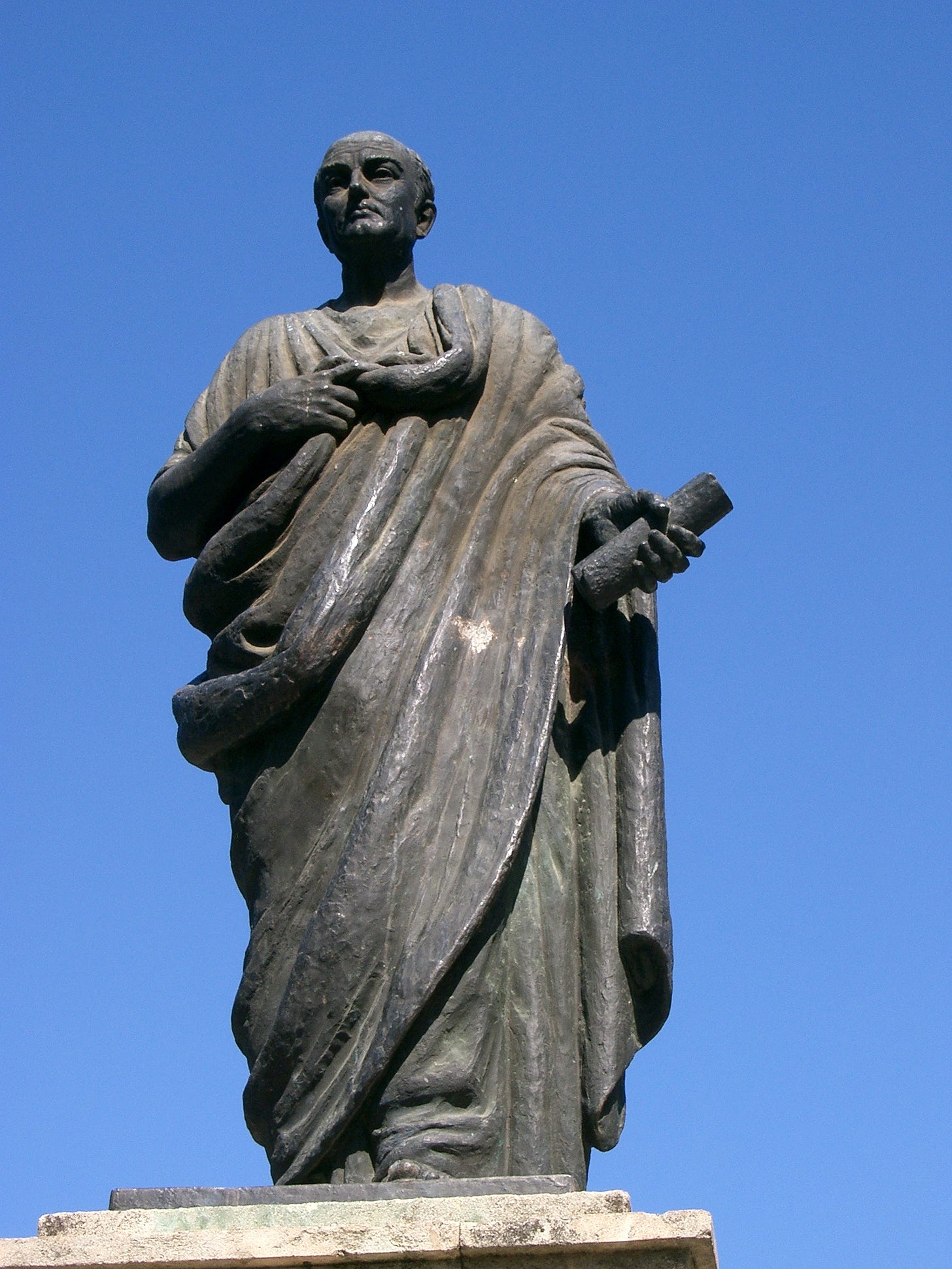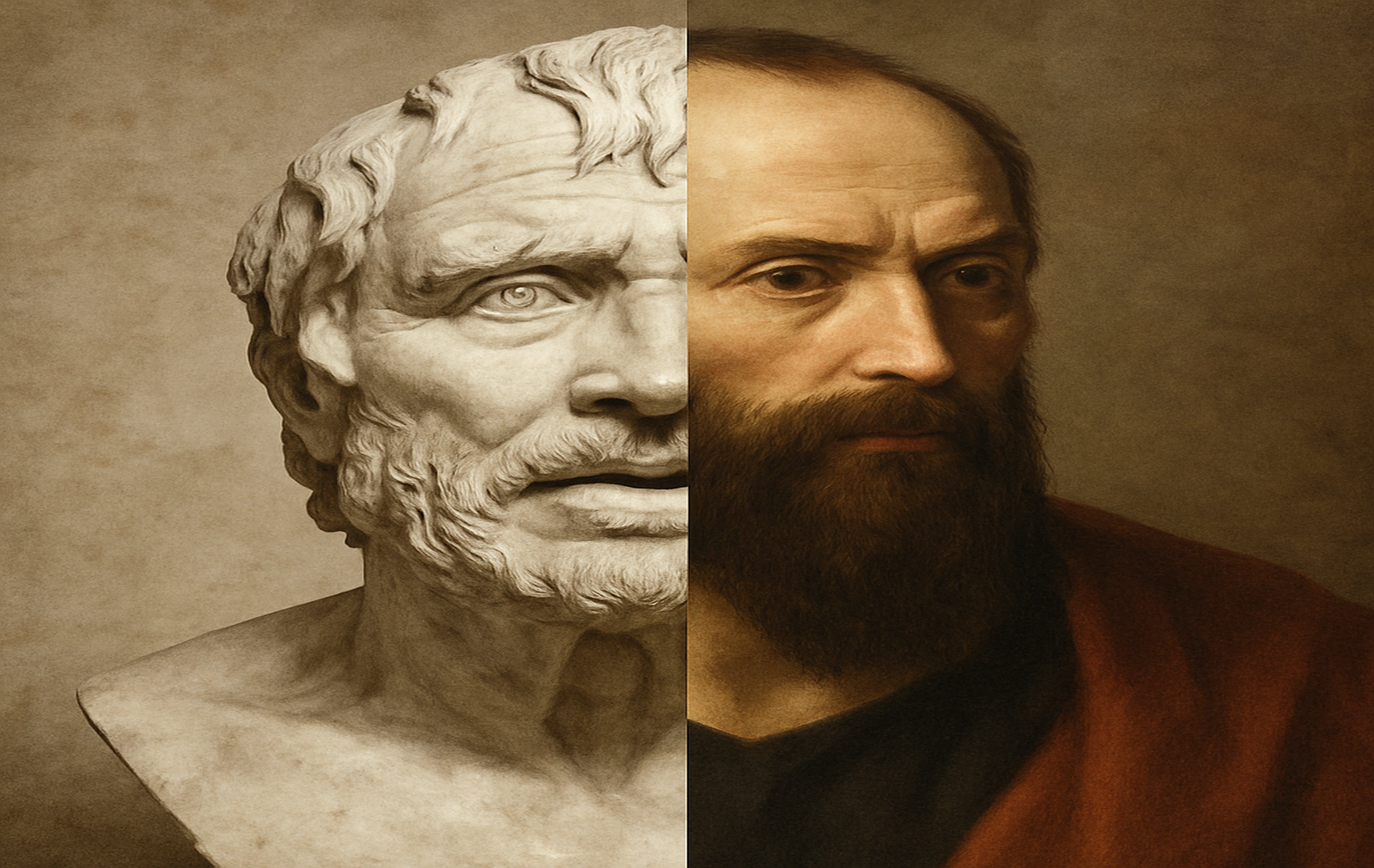In recent years, there has been a noticeable rise in interest around the ancient philosophy of Stoicism. Podcasts, YouTube channels, and best-selling books have introduced millions to its ideas, focusing on inner resilience, virtue, and self-control. Stoicism believes that the ideal man detaches themselves from the highs and lows of life, remaining unmoved by external circumstances.
One of Stoicism’s most influential voices was Seneca, a Roman statesman and philosopher who lived in the 1st century. As a tutor to Emperor Nero himself, Seneca like other Stoic philosophers promoted the ideal of autarkes, a Greek word meaning self-sufficiency. According to Stoic worldview, the ideal man needs nothing and no one. He is emotionally and practically autonomous, untouched by the chaos of life around him.

This concept of autarkes was especially admired in the Roman military, a sub-culture that deeply valued endurance, control, and inner strength.
At the very same time Seneca was writing from the halls of power, another man was writing from a prison cell, Paul the Apostle. Like Seneca, Paul was a Roman citizen. But unlike the Stoic philosopher, Paul was not promoting self-sufficiency. Instead, he proclaimed Christ-sufficiency.
In Philippians 4:11-12, Paul makes a bold statement to his Roman audience in the military-influenced city of Philippi:
I have learned to be content whatever the circumstances. I know what it is to be in need, and I know what it is to have plenty. I have learned the secret of being content in any and every situation, whether well fed or hungry, whether living in plenty or in want.

Paul deliberately chooses the exact word to describe contentment that would have caught the Stoic’s attention, autarkes. But rather than embrace its Stoic meaning, he transforms it. Paul essentially says, “You want the secret to contentment? I’ve found it. But it’s not detachment and self-sufficiency… It’s Jesus.”
Here are the three parts of Paul’s secret to true contentment as described in Philippians 4
#1 True Contentment is Not Dependent on Circumstances
This first point would make any Stoic nod in agreement. Paul echoes the idea that peace is not tied to one’s external circumstances. But he doesn’t stop here. While the Stoic detaches from emotions and circumstances to avoid pain and hurt, Paul roots his contentment in trust in God’s providence.
Paul’s contentment doesn’t fluctuate based on whether he’s full or hungry, rich or poor. That’s a powerful message in our culture that constantly whispers, “You’ll be happy once you have more.” But the truth is, more stuff won’t bring joy, and neither will less.
And yet so often we think that we need a change of circumstances in order to experience more joy. So often we say “If Only…” or “once I have…”
Consider this poem by Jason Lehman called “Present Tense”
It was spring, but it was summer I wanted,
The warm days, and the great outdoors.
It was summer, but it was fall I wanted,
The colorful leaves, and the cool, dry air.
It was fall, but it was winter I wanted,
The beautiful snow, and the joy of the holiday season.
It was now winter, but it was spring I wanted,
The warmth, and the blossoming of nature.
I was a child, but it was adulthood I wanted,
The freedom, and the respect.
I was 20, but it was 30 I wanted,
To be mature, and sophisticated.
I was middle-aged, but it was 20 I wanted,
The youth, and the free spirit.
I was retired, but it was middle age that I wanted,
The presence of mind, without limitations.
My life was over, but I never got what I wanted.
We live in the constant “if only…” and “once I…” If only I had more money, more freedom, more success, then I’d be content. Once I’m in a different season then I’ll have joy. Paul teaches us to break this cycle. Our joy must be rooted not in circumstances, but in Christ.
#2 True Contentment is Learned Through Experience
Twice in Philippians 4:11-12, Apostle Paul says he learned contentment. It didn’t come naturally or instantly, it had to be acquired through life’s highs and lows. Paul walked through both wealth and poverty, comfort and suffering. He stayed in the homes of generous believers like Lydia, but also endured beatings, shipwrecks, and cold nights.
Contentment is a lesson, not a personality trait. It’s a spiritual discipline forged in the fires of life’s tests.
These tests come in both abundance and need. When life is good, the temptation is pride and greed. Ecclesiastes warns that wealth is never enough for those who love it (Ecclesiastes 5:10). In times of lack, we’re tempted by envy and despair. Poverty can just as easily lead to resentment or sin (Proverbs 30:7-9).
Point here is simple: Contentment is a battle for the heart in every season. It’s not about having much or little. It’s about the posture of your soul in both.
#3 True Contentment is Empowered by Christ
Here is the hard break with Stoicism. Paul writes, “I can do all this through him who gives me strength” (Philippians 4:13).
The Stoics believed the goal was to become self-sufficient. Paul says the opposite: I am content because I have Christ, and He is enough.
True contentment doesn’t come from positive thinking or detachment, it comes from communion and union with Jesus. Just like a tree draws strength through its unseen roots, the believer draws strength through connection with Christ. We are not pretending life isn’t hard, we’re walking through it with our Savior.
And so, contentment is not something you achieve, it’s someone you receive, and his name is Jesus! Contentment comes from knowing Jesus, trusting His guidance, and depending on His strength.
Whatever season you’re in, whether it’s plenty or poverty, joy or sorrow, comfort or pain, the question remains: Is Christ enough for you right now?
That’s the secret. And it’s not hidden anymore.
Image Credit 1: Estatua de Séneca en Córdoba, bronce de Amadeo Ruiz Olmos, 1965;
Image Credit 2: St. Paul by Pierre-Étienne Monnot. Nave of the Basilica of St. John Lateran (Rome)


